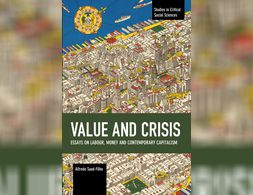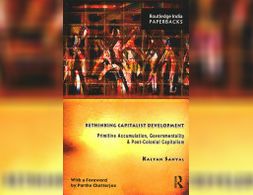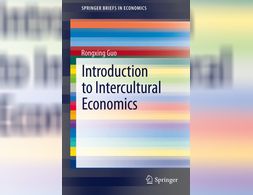493 Ergebnisse
This course introduces students to the relevance of gender relations in economics as a discipline and in economic processes and outcomes. The course covers three main components of gender in economics and the economy: (1) the gendered nature of the construction and reproduction of economic theory and thought; (2) the relevance and role of gender in economic decision-making; and (3) differences in economic outcomes based on gender. We wil touch on the relevance of gender and gender relations in at least each of the following topics: economic theory; the history of economic thought; human capital accumulation; labor market discrimination; macroeconomic policy, including gender budgeting; household economics; basic econometrics; and economic crises.
In the interview, Robert Skidelsky discusses the emergence of political influence of a certain school of economic thought and how the success of an economic theory depends on the power relations in the society. He introduces the historical example of Keynesian economics and its replacement by liberal economic theory and policy in the aftermath of the Great Depression, and transfers this historical case to the dominant paradigm of austerity policies in the Europe as response to rising public debts caused by the Financial Crisis. He contrasts austerity policies with a Keynesian approach. Furthermore, he relates the targets of policy to the underlying power structures, for example when not the reduction of unemployment but the protection of financial capital is politically addressed.
This Blog Post describes the U.S. federal reserve money system from the perspective of the Modern Monetary Theory (MMT). Therefore it presents a theory of money creation, gives simple examples how this influences the economy and the historical process of why the monetary system of the US has developed this way.
Richard Werner touches on a number of topics in this Odd Lots Podcast episode. As one of the pioneers when it comes to money and credit creation, he gives interesting insights into his early research on this topic. He then explains what he calls the “Quantity Theory of Credit” and is an alternative to the "Quantity Theory of Money".
Since the 1980s, the financial sector and its role have increased significantly. This development is often referred to as financialization. Authors working in the heterodox tradition have raised the question whether the changing role of finance manifests a new era in the history of capitalism. The present article first provides some general discussion on the term financialization and presents some stylized facts which highlight the rise of finance. Then, it proceeds by briefly reviewing the main arguments in the Marxian framework that proposedly lead to crisis. Next, two schools of thought in the Marxian tradition are reviewed which consider financialization as the latest stage of capitalism. They highlight the contradictions imposed by financialization that disrupt the growth process and also stress the fragilities imposed by the new growth regime. The two approaches introduced here are the Social Structure of Accumulation Theory and Monthly Review School. The subsequent part proceeds with the Post-Keynesian theory, first introducing potential destabilizing factors before discussing financialization and the finance-led growth regime. The last section provides a comparative summary. While the basic narrative in all approaches considered here is quite similar, major differences stem from the relationship between neoliberalism and financialization and, moreover, from the question of whether financialization can be considered cause or effect.
This thoroughly revised and updated second edition provides a comprehensive guide to Post Keynesian methodology, theory and policy prescriptions. The Companion reflects the challenges posed by the global financial crisis that began in 2008 and by the consolidation of the New Neoclassical Synthesis in macroeconomic theory.
The economic crisis is also a crisis for economic theory. Most analyses of the evolution of the crisis invoke three themes, contagion, networks and trust, yet none of these play a major role in standard macroeconomic models. What is needed is a theory in which these aspects are central.
Value and Crisis brings together selected essays written by Alfredo Saad-Filho, one of the most prominent Marxist political economists writing today. Divided into two parts, "Essays on the Theory of Value" and "Essays on Contemporary Capitalism," this book examines the labour theory of value from a rich and innovative perspective from which fresh insights are derived.
In this book, Kalyan Sanyal reviews the traditional notion of capitalism and propounds an original theory of capitalist development in the post-colonial context. In order to substantiate his theory, concepts such as primitive accumulation, governmentality and post-colonial capitalist formation are discussed in detail.
How can we establish new institutions and practices in order to use fare-free public transport as a beacon for sustainable mobility and a low-carbon lifestyle? The author of this essay elaborates on how practice theory and institutional economics can help to answer this question.
Institutional economics focuses on the role of social institutions in terms of laws or contracts, but also those of social norms and patterns of human behaviour that are connected to the social organisation of production, distribution and consumption in the economy.
Post-Keynesians focus on the analysis of capitalist economies, perceived as highly productive, but unstable and conflictive systems. Economic activity is determined by effective demand, which is typically insufficient to generate full employment and full utilisation of capacity.
This book presents a methodological framework for the analysis of intercultural issues frequently misinterpreted by existing theories. It uses a challenge-and-response theory of cultural development to examine the relationship between different natural disasters and threats and the developments of ancient civilizations.
MERCOSUR (Mercado Común del Sur or Common Southern Market) was the first formalized attempt to integrate South American countries economically and politically.
This module examines current socio-political issues through the lens of pluralism, that is pluralism of theory, pluralism of method and interdisciplinary pluralism
Ein philosophischer Blick auf die Grundlagen internationaler Ökonomie Jakob Kapeller Quelle van Treeck Till and Janina Urban Wirtschaft neu denken Blinde Flecken in der Lehrbuchökonomie iRights Media 2016 Das Buch kann hier bestellt werden http irights media de publikationen wirtschaft neu denken Rezensiertes Buch Krugman P R Obstfeld M Melitz …
The general idea of a Job Guarantee (JG) is that the government offers employment to everybody ready, willing and able to work for a living wage in the last instance as an Employer of Last Resort. The concept tackles societal needs that are not satisfied by market forces and the systemic characteristic of unemployment in capitalist societies. Being a central part of the Modern Monetary Theory (MMT), attention for the JG concept rose in recent years.
In this overview paper, Laura Porak reviews the history of industrial policy in the European Union before the background of a Cultural Political Economy approach.
A review of:
[1] Intermediate Microeconomics, H.R. Varian
[2] Mikrooekonomie, R.S. Pindyck, D.L. Rubinfeld
[3] Grundzuege der mikrooekonomischen Theorie, J. Schumann, U. Meyer, W. Stroebele
Steve Keen analyses how mainstream economics fails when confronted with the covid-19-pandemic. Mainstream economics has propagated the dismantling of the state and the globalization of production - both of which make the crisis now so devastating. More fundamentally, mainstream economics deals with market systems, when what is needed to limit the virus’s spread is a command system.
From the two premises that (1) economies are complex systems and (2) the accumulation of knowledge about reality is desirable, I derive the conclusion that pluralism with regard to economic research programs is a more viable position to hold than monism. To substantiate this claim an epistemological framework of how scholars study their objects of inquiry and relate their models to reality is discussed. Furthermore, it is argued that given the current institutions of our scientific system, economics self-organizes towards a state of scientific unity. Since such a state is epistemologically inferior to a state of plurality, critical intervention is desirable.
What made the false assumption that saving the economy at all cost during a pandemic so popular? This paper discusses different pathways through the COVID-19 pandemic at national and international level, and their consequences on the health of citizens and their economies.
A systematic comparison of the three major economic theories, showing how they differ and why these differences matter in shaping economic theory and practice.
Contending Economic Theories offers a unique comparative treatment of the three main theories in economics as it is taught today: neoclassical, Keynesian, and Marxian. Each is developed and discussed in its own chapter, yet also differentiated from and compared to the other two theories.
The Great Recession 2.0 is unfolding before our very eyes. It is still in its early phase. But dynamics have been set in motion that are not easily stopped, or even slowed. If the virus effect were resolved by early summer—as some politicians wishfully believe—the economic dynamics set in motion would still continue. The US and global economies have been seriously ‘wounded’ and will not recover easily or soon. Those who believe it will be a ‘V-shape’ recovery are deluding themselves. Economists among them should know better but are among the most confused. They only need to look at historical parallels to convince themselves otherwise.
Behavioural economics deals with observing behaviour and economic decision making behaviour.
Hohepriester der Freihandelssekte Internationaler Handel und Globalisierung in Standardlehrbüchern der Volkswirtschaftslehre Achim Truger Quelle van Treeck Till and Janina Urban Wirtschaft neu denken Blinde Flecken in der Lehrbuchökonomie iRights Media 2016 Das Buch kann hier bestellt werden http irights media de publikationen wirtschaft neu denken Rezensierte Bücher Krugman P R …
"Why information grows" by Cesar Hidalgo and the atlas of economic complexity. César visits the RSA to present a new view of the relationship between the individual and collective knowledge, linking information theory, economics and biology...
In this classic work of economic history and social theory, Karl Polanyi analyzes the economic and social changes brought about by the "great transformation" of the Industrial Revolution.
After completing the module, participants should have knowledge and understanding about the theory of Critical Political Economy and its basic methods. They should be able to apply central concepts to analyse critical questions regarding the embeddedness of economic relations within broader social, political and ecological relations.
This book introduces 40 critical pointers for those who wish to see the theory in a broader, more realistic context. The material is suitable for introductory and intermediate courses and can be included selectively by students for additional reading or in lectures or tutorials as discussion points. "Students of mainstream economics need a guide like this to help them understand the underlying assumptions, limitations and inbuilt biases of what they are studying. It helps them open their eyes to a broader view of how real economies work."
The outbreak of COVID-19 has substantially accelerated the digitalization of the economy. Yet, this unprecedented growth of digital technology brought novel challenges to the labour market. Rise in income inequalities and precarious working conditions or polarization of jobs. In this essay, we try to assess what tools to use to counter these trends.
By conducting a discourse analysis (SKAD) in the field of academic economics textbooks, this paper aims at reconstructing frames and identity options offered to undergraduate students relating to the questions ‘Why study economics?’ and ‘Who do I become by studying economics?’. The analysis showed three major frames and respective identity offerings, all of which are contextualized theoretically, with prominent reference to the Foucauldian reflection of the science of Political Economy. Surprisingly, none of them encourages the student to think critically, as could have been expected in a pedagogical context. Taken together, economics textbooks appear as a “total structure of actions brought to bear upon possible action” (Foucault), therefore, as a genuine example of Foucauldian power structures.
Wir nutzen Cookies. Klicke auf "Akzeptieren" um uns dabei zu helfen, Exploring Economics immer besser zu machen!






























